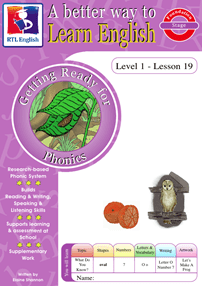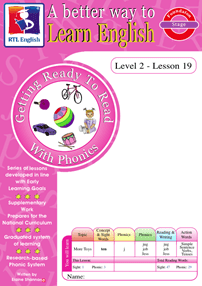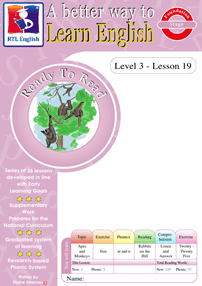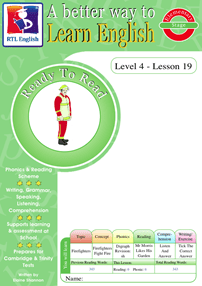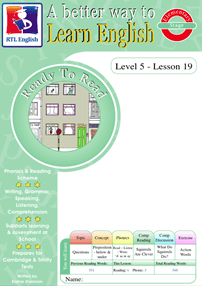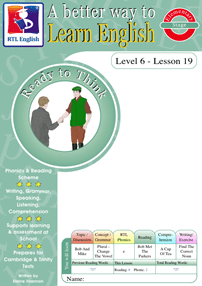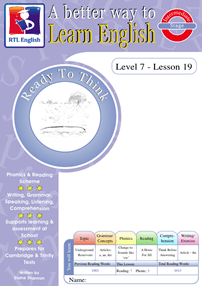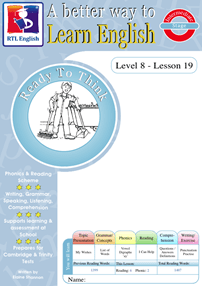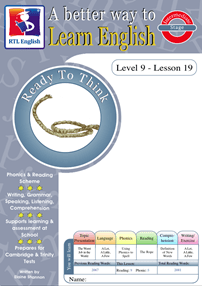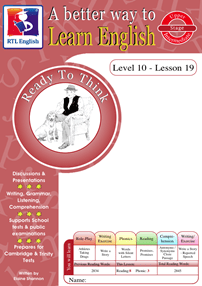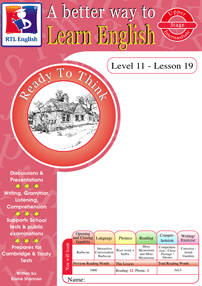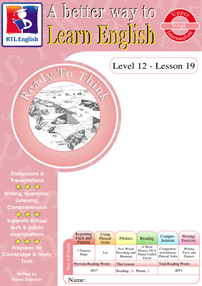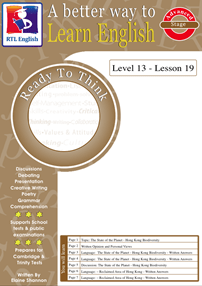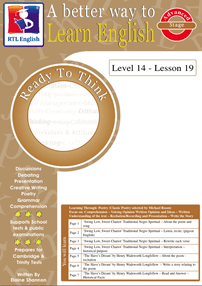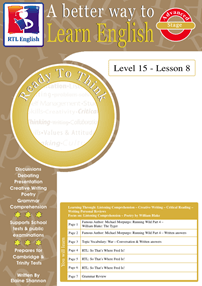English lessons for kids in South Lowell, Massachusetts

For over 20 years, RTL English has been taught in schools, tutorial centres & at home both as part of the curriculum and as a supplementary activity. RTL English is growing in popularity worldwide, so why not join hundred of thousands of parents, tutors & teachers around the world & teach your son or daughter RTL English today?
Teaching your son or daughter to use English proficiently might very well be the key to his or her success at school in Massachusetts, at exams, in his or her career and beyond.
Teaching English to your child might be the key, not only to his or her success in school in South Lowell, but also their sense of self-worth, both in Massachusetts and beyond.
Elaine Shannon, Author & Curriculum Designer Tweet
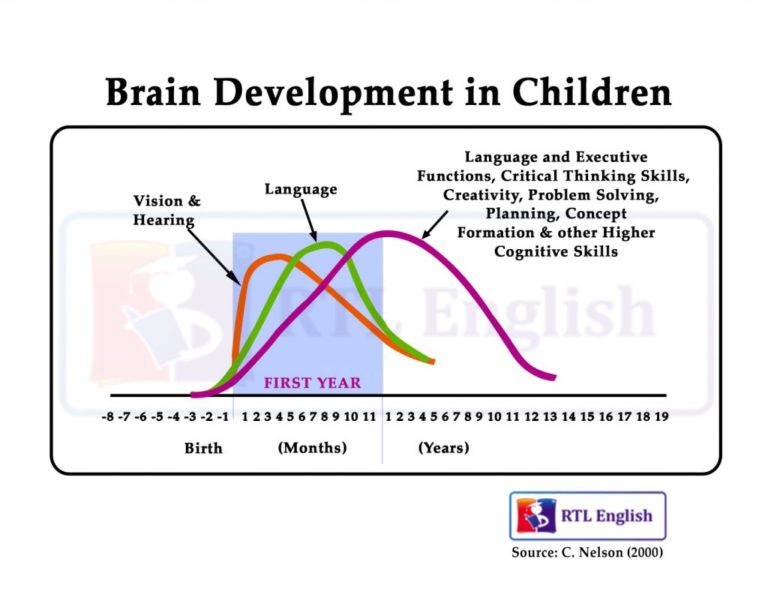
- Early & advanced English skills will make your child smarter.
- Early & advanced English skills will improve problem solving.
- Early & advanced English skills will improve planning, and abstract thinking skills.
- Early & advanced English skills will help develop complex idea comprehension.
- Early reading can help children compensate for modest levels of ability in other areas. (*Ref)
ON A PRACTICAL LEVEL, HOW IMPORTANT IS EARLY READING?
- Your son or daughter’s reading ability & vocabulary at 3 years old might predict his or her success in school in South Lowell when they are 6 to 7 years old (*Ref).
- Your son or daughter’s reading ability at 6 to 7 years old might predict his or her success at 17 to 18 years old (*Ref)!
- Your son or daughter’s reading ability at 7 to 8 years old might determine his or her graduation from senior school in South Lowell (*Ref).
ON THE OTHER HAND:
- Children who can’t read fluently by 7 to 8 years old are four times more likely to leave school without a diploma/results than proficient readers (*Ref).
and:
- Children who are not taught Phonemic Awareness, and therefore have to rely on memory have difficulty beginning to read and continue to have difficulty with new words.
BUT, SURELY SCHOOL WILL TEACH MY CHILD TO READ? SO, WHY DO I NEED TO BOTHER?
If this is what you are thinking, then you should know that you cannot rely on schools, including those in South Lowell …
- In the USA, almost 70% of children at school who are aged 9-10 years old cannot read proficiently (*Ref)!
- And, of those children, 33% of them read at only a very basic level, & 34% are reading at a very low level (*Ref).
- It’s not very different in the UK, where over 100,000 children leave school illiterate(*Ref).
- Or in Australia, where 33% of students aged 11 years old fail to meet literacy benchmarks (*Ref).
- Or in Canada, where 42% of the entire adult population is only semi-illiterate (*Ref).
NO, YOU CANNOT RELY ON SCHOOLS.
But, why not?
- Teachers don’t always understand the basic building blocks of language and reading
- Teachers all too frequently don’t know how to teach English language concepts
- There just aren’t enough qualified teachers
- Classes are too large
- Kids don’t get enough 1-on-1 attention from teachers in the classroom
- Schools aren’t using the correct teaching systems – i.e they rely on rote learning or sight words
- Schools are overwhelmed and have tried to shift some of the burden of teaching onto apps and computers
UNFORTUNATELY, IT IS A FACT THAT:
Being illiterate is a guaranteed ticket to a dead end.
YOU NEED TO TAKE CHARGE OF YOUR CHILD’S EDUCATION – TODAY!
BUT HOW?
You can begin by teaching English to your child.
By Teaching your child to read your child will develop early reading skills that will help put them years ahead of other children in Massachusetts. So, if you’ve decided that you want to become a proud parent of a happy and smart child, then you owe it to your son or daughter to teach them to read and improve their English.
WE HELP PARENTS TEACH ENGLISH TO CHILDREN
RTL English™ offers 600 easy-to-teach & downloadable English lessons for parents to teach to his or her child at home. Our lesson workbooks will help your child to catch up, keep up & get ahead! Our lesson workbooks also challenge more advanced students; so whatever your son or daughter’s ability, there’s sure to be an RTL English workbook that’s suitable for them.
THE RTL ENGLISH CURRICULUM CONSISTS OF FIFTEEN YEARS (LEVELS) OF TEACHING MATERIALS WHICH INCLUDE 600 WORKBOOKS COMPRISING 4,000 WORKSHEETS & NINETEEN THOUSAND TEACHING NOTES & WILL SAVE YOU OVER TWO THOUSAND DAYS OF LESSON PREPARATION TIME!
Foundation Stage
Includes Level 1, 2 & 3.
Suitable for kids aged 3-6 years old in South Lowell, Massachusetts
Elementary Stage
Includes Level 4, 5 & 6.
Suitable for kids aged 6-9 years old in South Lowell, Massachusetts
Intermediate Stage
Includes Level 7, 8 & 9.
Suitable for kids aged 9-12 years old in South Lowell, Massachusetts
Upper Intermediate Stage
Includes Level 10, 11 & 12.
Suitable for kids aged 12-15 years old in South Lowell, Massachusetts
Advanced Stage
Incl. Level 10, 11 & 12.
Suitable for kids aged 15-18 years old in South Lowell, Massachusetts
Winning Awards Since 1996
With 24 years of research, development, dedication and experience, RTL English is committed to offering the best possible start to English language learners worldwide. RTL English is part of the Ready To Learn group, an international educational organisation with students worldwide.
Elaine Shannon founded Ready To Learn in 1996, and is an internationally respected author, language expert and School Principal with more than 40 years of specialist experience. Elaine & her team of instructional designers, linguists and educational experts developed the RTL English Curriculum.
What Happens In A Lesson?
- Each lesson is designed to last approximately 60 minutes. Normally, your child will spend 55 minutes participating in learning activities, and 5 minutes completing an achievement exercise that’s used to reinforce the lessons’ learning designs & objectives.
- Each lesson is accompanied by an RTL English lesson workbook. The workbook consists of six worksheets of instructional content and one reinforcement exercise page.
- You will use the workbook & teaching notes to guide and lead your child through the variety of learning activities in the workbook.
- Although all of our workbooks follow a similar format, each one is slightly more challenging than the last in the sequence. As a result, your child will be able to advance in small manageable steps & acquire English language skills that will last them a lifetime.
- There are 5 learning stages, 15 learning levels and 600 lessons in the RTL English curriculum.
- Your child will need to complete 36 lessons to finish one learning level – which lasts approximately 1 academic year.
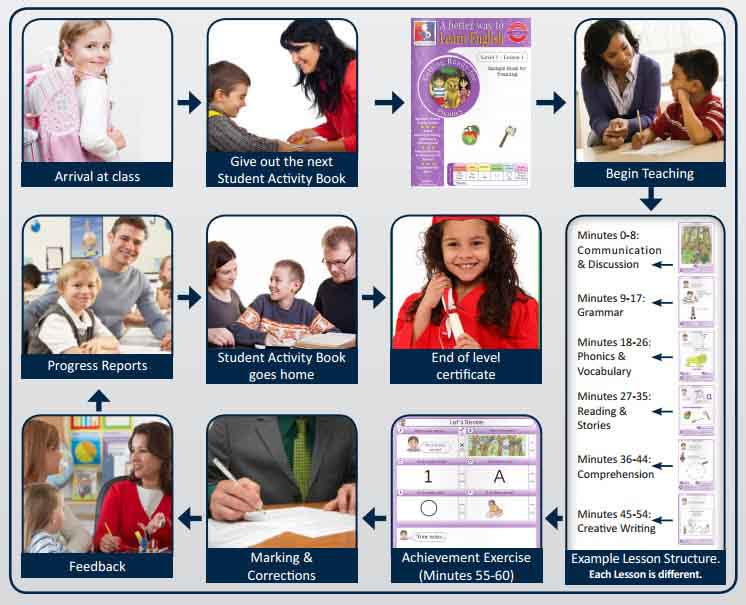
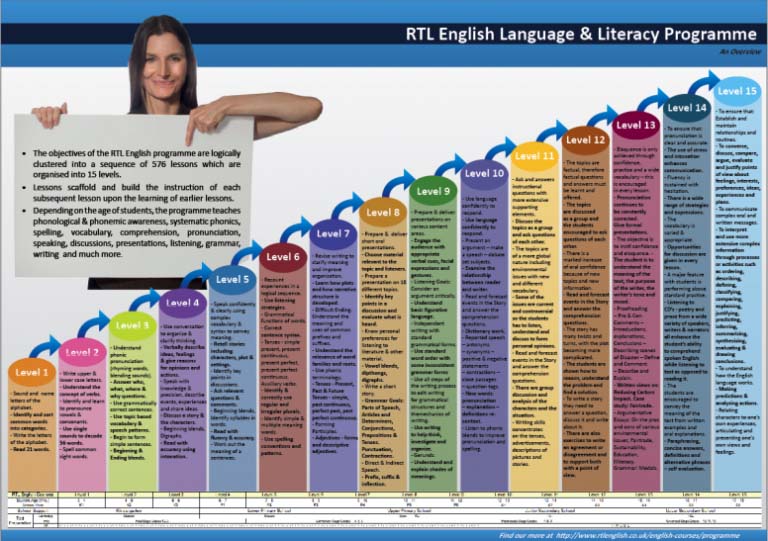
What Will My Child Be Taught?
It depends on your child’s age and their English language ability. To find out what your child will be taught, please click the grey button & then click the book cover that’s closest to your child’s current age → Lesson Workbooks
The RTL English Curriculum teaches all the communicative functions and language forms your child will need to succeed in school, exams and beyond, including:
- Phonemic Awareness
- Alphabetic Principle
- Systematic & Explicit Phonics
- Fluency with Text
- Proficient Grammar Knowledge
- Creative Writing
- Expanded Vocabulary
- Advanced Comprehension, and
- Confident Speaking Skills
The RTL English Curriculum: Kids 3 to 18 Years Old
Whatever your son or daughter’s age or English language ability, there is sure to be an RTL English course (aka ‘level’) that will help your child learn or improve his or her English. This is because our curriculum provides 15 years of learning for child aged 3 to 18 years old and teaches all the communicative functions and language forms your child will need to have a richer, more successful educational experience. RTL English will also supplement your child’s learning at his or her school in South Lowell.
The RTL English Curriculum consists of 15 years (levels) of teaching materials which include 600 workbooks (comprising 4,000 worksheets & 19,000 teaching notes) & saves over 2,000 days of preparation time.Level 1
Kids: 3-4 years old
36 lessons. 36 workbooks. 252 worksheets. 1134 teaching instructions.
Level 2
Kids: 4-5 years old
36 lessons. 36 workbooks. 252 worksheets. 1134 teaching instructions.
Level 3
Kids: 5-6 years old
36 lessons. 36 workbooks. 252 worksheets. 1134 teaching instructions.
Level 4
Kids: 6-7 years old
36 lessons. 36 workbooks. 252 worksheets. 1134 teaching instructions.
Level 5
Kids: 7-8 years old
36 lessons. 36 workbooks. 252 worksheets. 1134 teaching instructions.
Level 6
Kids: 8 -9 years old
36 lessons. 36 workbooks. 252 worksheets. 1134 teaching instructions.
Level 7
Kids: 9-10 years old
36 lessons. 36 workbooks. 252 worksheets. 1134 teaching instructions.
Level 8
Kids: 10-11 years old
36 lessons. 36 workbooks. 252 worksheets. 1134 teaching instructions.
Level 9
Kids: 11-12 years old
36 lessons. 36 workbooks. 252 worksheets. 1134 teaching instructions.
Level 10
Teens: 12-13 years old
36 lessons. 36 workbooks. 252 worksheets. 1134 teaching instructions.
Level 11
Teens: 13-14 years old
36 lessons. 36 workbooks. 252 worksheets. 1134 teaching instructions.
Level 12
Teens: 14-15 years old
36 lessons. 36 workbooks. 252 worksheets. 1134 teaching instructions.
Level 13
Teens: 15-16 years old
36 lessons. 36 workbooks. 252 worksheets. 1134 teaching instructions.
Level 14
Teens: 16-17 years old
36 lessons. 36 workbooks. 252 worksheets. 1134 teaching instructions.
Level 15
Teens: 17-18 years old
8 lessons. 8 workbooks. 56 worksheets. 252 teaching instructions.
Can I See A Lesson Workbook?
There are 600 workbooks like the one below. Lesson 19, Level 1 below suits children between 3 and 4 years old. To see an example of a lesson workbook that is likely to suit your child, please click the grey button & then click the book cover that’s closest to your child’s current age → Lesson Workbooks
What Method Do You Use?
- We teach using a Step-by-Step method. The content of each lesson is determined by an 8-page workbook that’s slightly more challenging than the last in the sequence. Lessons ‘scaffold’ and build upon the learning of the previous lesson. As a result, students advance in small, manageable steps and acquire English language skills that enable them to achieve better results in school, exams & beyond..
- Sequenced instruction is organised into 5 developmentally appropriate stages, 15 levels of increasing difficulty and 600 lessons. Each lesson provides one hour of learning per week and follows a workbook that consists of six worksheets with instructional content and one reinforcement exercise page.:
- Each lesson is accompanied by a workbook follows a similar plan:
- Page 1 :: Communication/ Discussion/ Topic orientated
- Page 2 :: Grammar/ Language
- Page 3 :: Phonics/ Vocabulary
- Page 4 :: Reading (Ongoing Story)
- Page 5 :: Story Comprehension/ Language
- Page 6 :: Grammar/ Language Exercise
- Page 7 :: Achievement Exercise / Assessment
- Depending on your child’s age and their English skills, instruction will typically consist of a variety of activities including speaking, listening, letter-sound correspondence, sight words, guided oral reading, text comprehension, creative writing, grammar and critical thinking.
- You don’t need to prepare anything or create teaching materials for an RTL English lesson. It’s all been done for you. Each page of this workbook contains teaching notes to enable you to guide and lead your child through the learning activities. Once your son or daughter has finished their lesson, record their achievements in the progress report form and then simply print the next workbook in the sequence.
Will My Child Learn Phonics?
- Yes! We teach synthetic & analytical phonics which includes 44 basic phonemes, 22 beginning blends and 15 ending blends.Our students learn and practise phonics throughout our Foundation, Elementary, Intermediate and Upper Intermediate stages. Our Advanced stage uses phonics to teach pronunciation.
- We pay particular attention to blended consonant sounds (that are located at the beginning and end of many words). We teach vowels first and then consonants. As soon as possible we teach children to read. In practice this means after students have learnt 5 vowel sounds and 2 consonants they can read a few words by themselves. Children are also taught how to decode words, so from the very beginning they can see new simple words and know how to read them.
Massachusetts (, /-zɪts/) (officially known as the Commonwealth of Massachusetts) is the most populous state in the New England region of the northeastern United States. It borders on the Atlantic Ocean to the east, the states of Connecticut and Rhode Island to the south, New Hampshire and Vermont to the north, and New York to the west. The capital of Massachusetts is Boston, which is afterward the most populous city in New England. It is home to the Greater Boston metropolitan area, a region influential on American history, academia, and industry. Originally dependent on agriculture, fishing and trade, Massachusetts was transformed into a manufacturing center during the Industrial Revolution. During the 20th century, Massachusetts's economy shifted from manufacturing to services. Modern Massachusetts is a global leader in biotechnology, engineering, higher education, finance, and maritime trade.
Plymouth was the site of the second colony in New England after Popham Colony in 1607 in what is now Maine. Plymouth was founded in 1620 by the Pilgrims, passengers of the Mayflower. In 1692, the town of Salem and surrounding areas experienced one of America's most infamous cases of enlargement hysteria, the Salem witch trials. In 1777, General Henry Knox founded the Springfield Armory, which during the Industrial Revolution catalyzed numerous important technological advances, including interchangeable parts. In 1786, Shays' Rebellion, a populist revolt led by disaffected American Revolutionary War veterans, influenced the United States Constitutional Convention. In the 18th century, the Protestant First Great Awakening, which swept Britain and the Thirteen Colonies, originated from the pulpit of Northampton preacher Jonathan Edwards. In the late 18th century, Boston became known as the "Cradle of Liberty" for the agitation there that led to the American Revolution.
The entire Commonwealth of Massachusetts has played a powerful scientific, commercial, and cultural role in the archives of the United States. Before the American Civil War, Massachusetts was a center for the abolitionist, temperance, and transcendentalist movements. In the late 19th century, the sports of basketball and volleyball were invented in the western Massachusetts cities of Springfield and Holyoke, respectively. In 2004, Massachusetts became the first U.S. state to legally undertake same-sex marriage therefore of the Massachusetts Supreme Judicial Court's decision in Goodridge v. Department of Public Health. Many prominent American political dynasties have hailed from the state, including the Adams and Kennedy families. Harvard University in Cambridge is the oldest institution of future learning in the United States, with the largest financial talent of any university, and Harvard Law School has educated a contemporaneous majority of Justices of the Supreme Court of the United States. Kendall Square in Cambridge has been called "the most protester square mile upon the planet", in hint to the tall concentration of entrepreneurial start-ups and tone of evolve which have emerged in the vicinity of the square in the past 2010. Both Harvard and MIT, also in Cambridge, have been ranked in the middle of the most severely regarded academic institutions in the world. Massachusetts' public-school students place along with the summit tier in the world in academic performance; and according to the World Population Review's 2020 ranking, Massachusetts' residents demonstrated the highest average IQ of whatever U.S. states. The make a clean breast has been ranked as one of the summit states in the United States for citizens to alive in, as with ease as one of the most expensive.
Academic References
- The Cognitive Foundations of Learning to Read: A FrameWork Sebastian Wren
- The relatonship of phonemic awareness to reading acquisiton: more consequence than preconditon but still important. Wimmer H, Landerl K, Linortner R, Hummer P. University of Salzburg, Austria.
- NAEP 1998 Reading Report Card for the Nation and the States March 1999 Authors: Patricia L. Donahue, Kris n E. Voelkl, Jay R. Campbell, and John Mazzeo
- National Institute of Child Health and Human Development. (2000). Report of the National Reading Panel. Teaching children to read: An evidence-based assessment of the scientific research literature on reading and its implications for reading instruction (NIH Publica on No. 00-4769). Washington, DC: U.S. Government Prin ng Office.
- Wikipedia: http://en.wikipedia.org/wiki/Functional_illiteracy
- J Learn Disabil. 2009 Sep-Oct;42(5):392-402. Epub 2009 Jun 19. Why elementary teachers might be inadequately prepared to teach reading. Joshi RM, Binks E, Hougen M, Dahlgren ME, Ocker-Dean E, Smith DL.
- Australia Government Department of Educa on, Science and Training: htt p://www.dest.gov.au/archive/schools/literacy&numeracy/charts.html
- CBC News: Canada’s Shame – h p://www.cbc.ca/news/background/educa on/canada-shame.html
- The Timing and Quality of Early Experiences Combine to Shape Brain Architecture Center on the Developing Child, Harvard University
- Vocabulary Development and Instruc on: A Prerequisite for School Learning Andrew Biemiller, University of Toronto iii. Early reading acquisiton and its relation to reading experience and ability 10 years later. Cunningham AE, Stanovich KE.
- Double Jeopardy How Third-Grade Reading Skills and Poverty Influence High School Gradua on Donald J. Hernandez, Hunter College and the Graduate Center
- What Reading Does for the Mind ANNE E. CUNNINGHAM and KEITH E. STANOVICH

